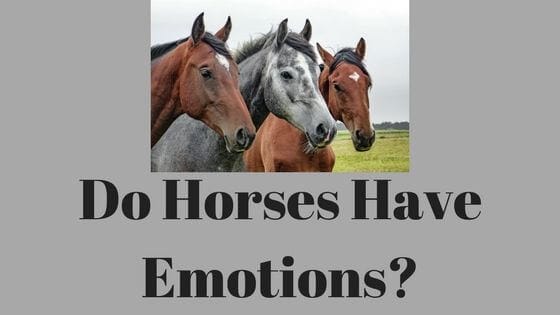Yes, horses have an extraordinary ability to remember things. Their memory is not only impressive but also crucial for their survival in the wild as well as their performance in domestication. Horses can recall past experiences, recognize familiar people and places, and even remember specific training cues. Their long-term memory is particularly remarkable, as they can retain information for years. This exceptional memory allows horses to adapt to their environment, learn from past events, and establish trust with their handlers.

Unforgettable Equines: Exploring the Impressive Memory Capacity of Horses
When it comes to memory, horses are often regarded as remarkable animals. Their ability to remember people, places, and experiences is truly impressive. In this section, we will delve into the fascinating world of equine memory and explore just how remarkable these creatures are.
1. Memory Retention:
Horses are known for their exceptional memory retention. They have the ability to remember things for long periods of time, sometimes even years. This is especially evident when it comes to remembering people and other horses. Once a horse forms a bond with someone, they are likely to remember that person for a very long time.
2. Spatial Memory:
Horses also have a remarkable spatial memory. They can remember the layout of their surroundings and navigate through familiar environments with ease. This is especially useful when it comes to finding their way back to the stable or locating food and water sources when they are out grazing.
3. Fear Conditioning:
Horses have the ability to associate past experiences with certain stimuli, which is known as fear conditioning. For example, if a horse had a negative experience with a particular object or sound, they are likely to remember it and exhibit fear or caution when encountering it again in the future. This is a survival mechanism that helps them avoid potential dangers.
4. Social Memory:
Horses have a strong social memory and can remember other horses that they have interacted with in the past. They can recognize familiar herd members and form strong bonds with them. This memory of familiar herd members helps them establish and maintain social hierarchies within their groups.
5. Training and Learning:
Horses have the ability to remember and learn from their training sessions. Once they have been taught a particular skill or command, they can remember and recall it even after a significant amount of time has passed. This is why consistent and repetitive training is crucial in enhancing their memory and overall learning abilities.
In summary, horses possess an impressive memory capacity that allows them to remember people, places, and experiences for extended periods of time. Their ability to navigate through familiar environments, associate past experiences with certain stimuli, remember familiar herd members, and recall training commands showcases their exceptional memory retention. Understanding the intricacies of equine memory can not only enhance our interactions with horses but also provide insights into their cognitive abilities and overall well-being.

The Mnemonic Masters: Understanding Why Horses are Known for Their Exceptional Memory
When it comes to intelligence, horses are often regarded as one of the most remarkable animals in the animal kingdom. Not only are they known for their strength and grace, but horses also possess an exceptional memory that sets them apart from other creatures. In this section, we will delve into the fascinating world of equine cognition and explore why horses are renowned as mnemonic masters.
1. Social Structure and Memory
Horses are highly social animals that live in herds, forming strong bonds with one another. This social structure plays a crucial role in the development of their memory capabilities. Within a herd, horses rely on social recognition to maintain their relationships and navigate their environment. They can remember the faces and characteristics of their fellow herd members, allowing them to distinguish between familiar and unfamiliar individuals.
2. Spatial Memory
In addition to their social memory, horses have an impressive ability to remember spatial information. They possess excellent navigation skills and can memorize complex routes and landscapes. This skill is particularly beneficial for wild horses as they need to remember the locations of water sources, food, and shelter in their vast habitats. Even domesticated horses demonstrate remarkable spatial memory, recalling the layout of their surroundings and the locations of important resources.
3. Learning and Training
Horses are highly trainable animals due to their exceptional memory. They have the ability to learn and retain various cues, commands, and routines. Through positive reinforcement and consistent training, horses can remember and execute a wide range of tasks, from basic commands to intricate maneuvers. Their capacity for learning is enhanced by their strong desire to please and their cooperative nature, making them ideal partners for various equestrian activities.
4. Emotional Memory
Another fascinating aspect of a horse’s memory is their ability to remember emotional experiences. Horses can recall past events that were associated with positive or negative emotions, and these memories can influence their behavior and responses. They can remember places or situations that have caused them stress or fear, allowing them to react accordingly to avoid potential threats or sources of anxiety. On the flip side, they can also remember positive experiences and form strong emotional bonds with humans or other animals.
5. Survival Instincts
Horses’ exceptional memory is not only beneficial for their day-to-day activities but also vital for their survival in the wild. The ability to remember past experiences, such as encounters with predators or dangerous situations, allows horses to adapt and make informed decisions to ensure their safety. This memory of potential threats helps them avoid similar dangers in the future, increasing their chances of survival.
In summary, horses possess an extraordinary memory that enables them to navigate their social interactions, remember landscapes, learn and execute tasks, recall emotional experiences, and enhance their survival instincts. Their mnemonic abilities are a testament to their intelligence and adaptability. Whether in the wild or domesticated settings, horses continue to amaze us with their exceptional cognitive abilities and their status as mnemonic masters.

From Past to Present: How Horses Retain Memories and Learn from Experience
Have you ever wondered how horses retain memories and learn from their past experiences? Horses, known for their intelligence and adaptability, have the ability to remember people, places, and experiences for long periods of time. In this section, we will delve into the fascinating world of equine memory and explore how horses learn from their past.
1. Cognitive Abilities:
Horses possess remarkable cognitive abilities that enable them to retain memories. Researchers have found that horses have excellent long-term memory and can remember specific individuals, even after several years of separation. This ability allows them to recognize familiar humans or other horses and form strong bonds with them.
Horses also have the ability to remember specific places and navigate familiar environments with ease. They can remember routes, landmarks, and even the location of food sources. This spatial memory helps them navigate their surroundings and find their way back to familiar territories.
2. Associative Learning:
Another way horses retain memories and learn from experience is through associative learning. Horses are quick to associate certain cues or events with specific outcomes. For example, if a horse receives a treat after performing a certain behavior, it will quickly learn to associate that behavior with a positive outcome and repeat it in the future.
This type of associative learning is not limited to positive experiences. Horses can also learn to associate negative experiences with certain cues and develop avoidance behaviors. For instance, if a horse has a negative encounter with a specific object, it may develop a fear or aversion towards similar objects in the future.
3. Social Learning:
Horses are highly social animals and learn from their interactions with other members of their herd. They observe and imitate the behaviors of their herd mates, allowing them to learn important survival skills and adapt to their environment. For example, a young foal will learn how to graze, drink water, and interact with other horses by observing its mother and other herd members.
This social learning extends beyond basic survival skills. Horses also learn from each other’s reactions and experiences. If one horse reacts fearfully to a new object or situation, other horses in the herd may learn to be cautious or fearful as well.
4. Emotional Memory:
In addition to cognitive and associative learning, horses also retain memories based on emotions. They have the ability to remember experiences that were accompanied by strong emotions and can exhibit emotional responses to similar situations in the future. For example, if a horse had a traumatic experience during a trailer ride, it may develop anxiety or fear towards trailers in the future.
In summary, horses possess remarkable memory abilities and can retain memories for long periods of time. They learn from their past experiences through cognitive abilities, associative learning, social learning, and emotional memory. Understanding how horses retain memories and learn from experience can help us better train and care for these magnificent animals.
A Closer Look at Equine Memory: How Horses Remember People, Places, and Events
Horses are known for their intelligence and ability to learn new tasks, but have you ever wondered how they remember people, places, and events? Equine memory is a fascinating topic that has been studied by researchers and horse enthusiasts alike. In this section, we will dive deeper into the intricacies of equine memory and explore how horses form and recall memories.
The Basics of Equine Memory
Like humans and other animals, horses rely on memory to navigate their environment and interact with others. Equine memory can be categorized into different types:
- Short-term memory: This refers to the ability of a horse to remember information for a short period, usually up to a few hours or days. Short-term memory is essential for tasks such as learning new cues or following instructions.
- Long-term memory: Long-term memory involves the storage and retrieval of information over a longer period, ranging from days to years. Horses can form long-term memories of people, places, and events that they have encountered in the past.
- Associative memory: Horses have a remarkable ability to remember associations between stimuli. For example, they can associate a particular person with positive or negative experiences and react accordingly.
How Horses Form Memories
Memory formation in horses is a complex process that involves various stages:
- Encoding: This is the initial stage where horses perceive and process information from their surroundings. The brain encodes this information and prepares it for storage.
- Consolidation: During this stage, the encoded information is transferred from short-term memory to long-term memory. It involves the strengthening of neural connections in the brain, allowing for better retention of the memory.
- Retrieval: When a horse needs to recall a memory, it undergoes the retrieval process. The brain accesses the stored information and brings it back into the conscious awareness of the horse.
Factors such as the emotional significance of the memory and the frequency of exposure to the stimuli can affect how well a horse forms and retains memories. Positive experiences, such as receiving treats or praise, are more likely to be remembered and associated with specific individuals or locations.
Horses’ Memory for People
Horses have the ability to recognize and remember individual people, even after extended periods of separation. Research has shown that horses can distinguish between familiar and unfamiliar humans based on visual and auditory cues. They can remember people they have interacted with in the past and may exhibit different behaviors towards familiar individuals.
Horses also have the capacity to remember positive or negative experiences with specific people. If a person has treated a horse kindly and provided rewards, the horse is more likely to remember them favorably. On the other hand, if a person has been harsh or caused fear, the horse may develop a negative association and remember the experience.
Horses’ Memory for Places and Events
Equine memory extends beyond remembering people to include places and events. Horses have been observed to remember the layout of their surroundings, such as the location of food sources, water, or shelter. They can navigate familiar environments with ease, even after an extended absence.
Additionally, horses can associate specific events or experiences with particular locations. For example, a horse may remember a specific trail ride route or a stressful event that occurred in a particular arena. These memories can influence the horse’s behavior and emotional response when encountering similar situations in the future.
The Implications of Equine Memory
Understanding how horses remember people, places, and events can have practical implications in training, handling, and overall horse care. By recognizing that horses have the ability to form and retain memories, individuals can work towards creating positive associations to build trust and enhance the horse-human relationship.
It is important to note that each horse is unique, and their memory capabilities may vary. Some horses may have particularly strong memory recall abilities, while others may rely more on their immediate environment and cues. Nonetheless, equine memory adds another dimension to the incredible cognitive abilities of horses.
In summary, equine memory plays a vital role in the lives of horses, allowing them to navigate their environment, recognize familiar individuals, and associate experiences with specific locations. The formation and retrieval of memories involve complex cognitive processes, and understanding these mechanisms can enhance our interactions with these majestic creatures.
Frequently Asked Questions
Do horses have a good memory?
Yes, horses have a remarkable memory. They can remember people, places, and other animals for a long time, sometimes even years. Their strong memory helps them navigate familiar routes, recognize familiar faces, and learn from past experiences.
What is the average lifespan of a horse?
The average lifespan of a horse is typically between 25 to 30 years. However, with proper care and good health, some horses can live well into their 30s or even 40s. Factors such as genetics, diet, exercise, and overall management play a role in determining a horse’s lifespan.
How much sleep do horses need?
Horses typically sleep for around 2-3 hours per day, distributed throughout short periods of time. They have the ability to sleep both standing up and lying down, and they often doze off while standing. However, they do require regular periods of deep sleep, which they usually get by lying down.
Conclusion:
In conclusion, horses are known for their remarkable memory capabilities. Their ability to remember people, places, and past experiences is truly impressive. This strong memory is crucial for their survival in the wild, as they can recall the location of food and sources of danger. Additionally, horses have shown great memory skills in various training and learning tasks, making them valuable companions for humans in various activities. However, it is important to note that individual horses may vary in their memory capabilities, just like humans. Overall, the exceptional memory of horses enhances their adaptability and makes them even more fascinating creatures.
